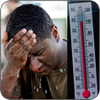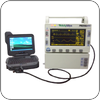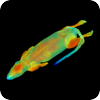
RESEARCH
PHYSIOLOGICAL DATA MODELING & MINING
Research efforts in this area support military operational medicine and combat casualty care missions. For operational support, we are developing phenomenological, first-principle, and data-driven adaptive mathematical models to reduce the risk of heat injuries and improve mental activity in response to sleep deprivation. For casualty care, we are developing hardware and software platforms, as well as artificial intelligence-based decision-support algorithms, to improve the management of combat casualties in pre-hospital and in-hospital settings.
Research Projects
 |
Core Temperature Predictions
We aim to develop individual-specific algorithms that anticipate impending heat injury, enabling proactive interventions that help reduce Warfighter injury risk. |
 |
Decision-Support Algorithms
We aim to develop algorithms and technologies to identify combat casualties at risk of life-threatening hemorrhage. |
 |
Glucose Modeling and Control
Our goal is to provide computational solutions that support open- and closed-loop control of glucose levels in patients with diabetes. |
 |
Performance Algorithms
To improve Warfighter readiness, we aim to develop individual-specific, adaptive algorithms that convert physiological data from wearable devices into actionable information. |
 |
Rat Thermoregulatory Modeling
Our goal is to investigate and link physiological and molecular mechanisms in response to thermoregulatory stresses in a rat animal model. |
 |
Sleep and Resilience
We aim to develop sleep-management and countermeasure tools to optimize Warfighter alertness and neurocognitive performance in operational environments. |